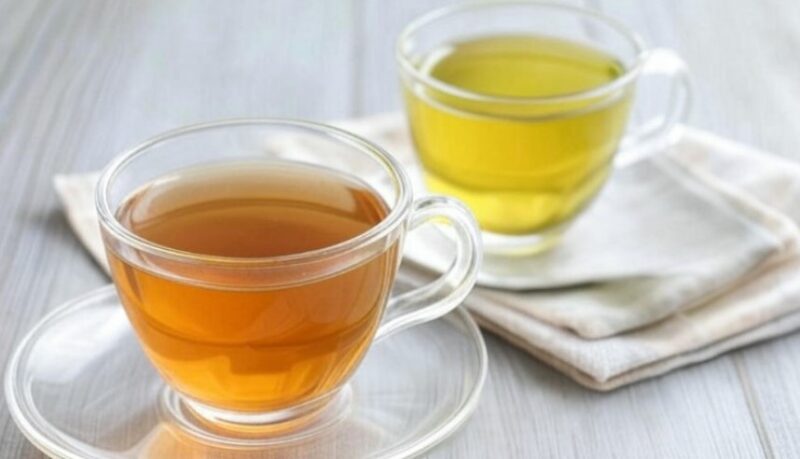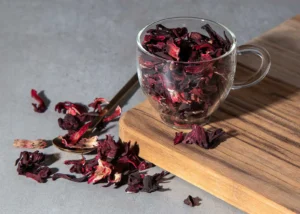If you’re anything like me, your day doesn’t quite feel right without a warm cup in hand. Lately, I’ve been mulling over a question that pops up more often than you’d expect: green tea or black tea—which one’s got the edge when it comes to health?
Both come from the same plant, Camellia sinensis, and both have die-hard fans swearing by their benefits. So, let’s break it down, sip by sip, and figure out what’s what.
There’s no clear winner, but I’ve got some juicy details to help you make an informed decision.
Side-by-Side Comparison
| Aspect | Green Tea | Black Tea |
| Caffeine | ~29 mg per 8 oz cup | ~47 mg per 8 oz cup |
| Antioxidants | Loaded with catechins (esp. EGCG), potent anti-inflammatory effects | Rich in theaflavins/thearubigins, might have lower capacity |
| Heart Health | Potentially lowers BP, moderate intake is linked to heart perks | 1–4 cups daily can reduce mortality risk, but watch excess |
| Brain Health | EGCG could help fend off Alzheimer’s, fosters calm alertness | Higher caffeine for sharper focus, less data on neuroprotection |
| Cancer Risk | May lower odds of some cancers (breast, prostate, colorectal) | Theaflavins might help, fewer studies available |
| Bone Health | Can increase calcium loss with excessive use | Mildly supports bones in moderation, not so much if overdone |
| Additional | Skin protection, tooth decay defense, no major weight loss effect | Supports insulin sensitivity, may lower depression risk |
| Side Effects | Possible stomach irritation, iron interference, liver concerns | Headaches, palpitations, medication interference, iron issues |
A Quick Look at the Basics
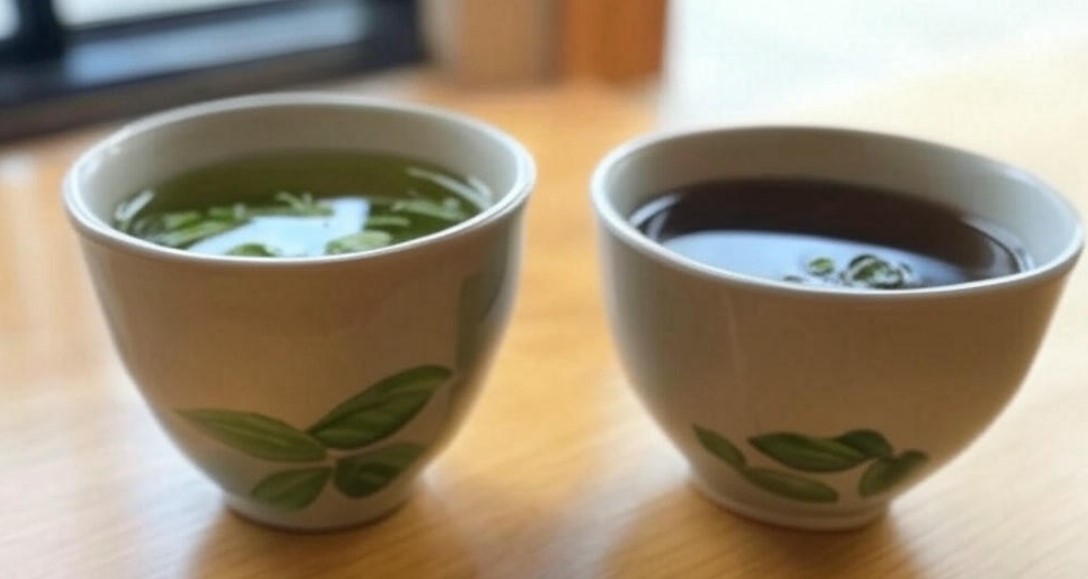
Green tea and black tea both originate from Camellia sinensis. They’re siblings from the same plant but undergo different processing methods:
- Green Tea: Leaves get steamed or pan-fried to lock in a fresh, grassy taste. Oxidation is basically halted early, so antioxidants remain relatively high.
- Black Tea: Leaves wilt, roll, and fully oxidize, which turns them that deep brown color and pumps up a malty, robust flavor.
Both have a long history of cultural significance around the globe. Some people see them purely as beverages, and others swear they’re liquid miracles.
The truth might lie somewhere in the middle. Let’s dig into some details to see what’s really going on, minus any hype.
Processing and Why It Matters
Processing determines the final flavor and general health benefits. Green varieties are handled gently, preserving hefty doses of catechins—particularly EGCG (epigallocatechin-3-gallate).
Black tea, on the other hand, transforms those catechins into theaflavins and thearubigins, compounds that carry their own perks. Each approach affects color, aroma, and even how your body responds to that steamy mug.
Key Differences in Compounds
- Catechins (Green Tea): Known for strong antioxidant activity, potentially linked to heart support, brain benefits, and more.
- Theaflavins & Thearubigins (Black Tea): Offer antioxidant effects as well, plus some unique points for insulin function and mental well-being.
Antioxidant Power and Anti-Inflammatory Perks
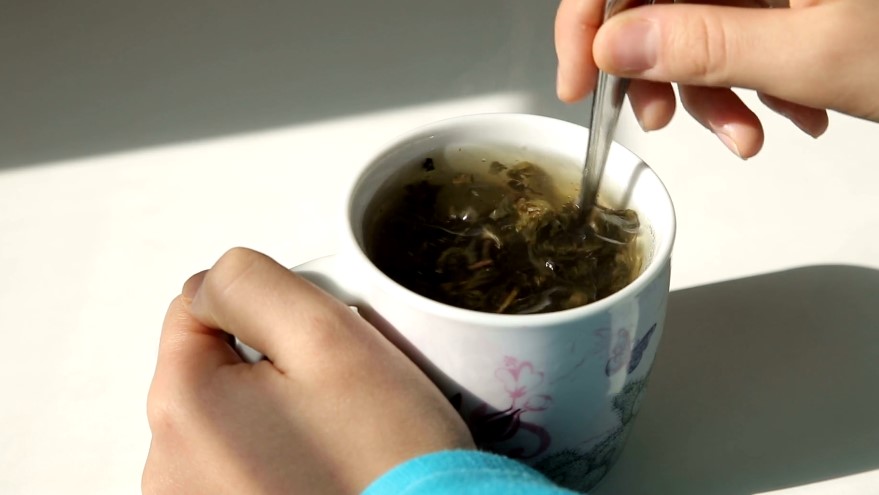
Antioxidants are kind of a big deal. They help reduce free radicals that can ramp up inflammation and possibly kick-start certain diseases. Green tea typically steals the spotlight here:
- Green Tea’s Strength: EGCG can clock in around 200–300 mg per cup. Research ties it to lower inflammation, potential anti-cancer actions, and a supportive role in cardiovascular health.
- Black Tea’s Twist: Theaflavins and thearubigins might increase total flavonoid intake. Some labs report black tea having a high flavonoid count, although the overall antioxidant capacity can be a bit less robust than green tea’s.
Caffeine and Mental Clarity
Some people crave a jolt from their tea, while others only want a mild boost:
- Caffeine Content: Black tea carries about 47 mg in an 8-ounce cup, while green tea has closer to 29 mg (numbers can vary a bit). If you’re aiming to cut back on caffeine but still want a subtle wake-up, green tea could be your buddy. If you’re all about that stronger pick-me-up, black tea might fit the bill.
- L-Theanine: Green tea is known for having a bit more of this amino acid. It promotes a calm, focused vibe and can balance out caffeine jitters. That might explain why some people feel a clear-headed buzz from green tea compared to a jittery buzz from coffee.
Heart Health and Blood Pressure
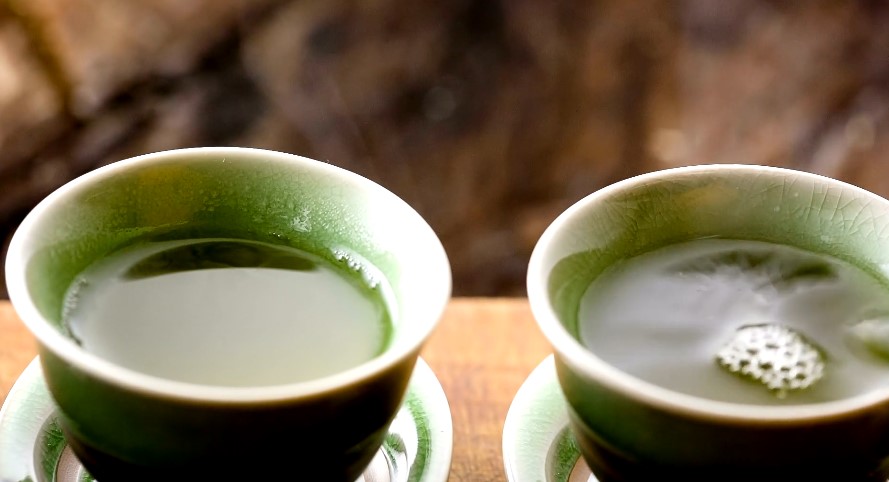
Cardiovascular perks pop up for both teas, although in slightly different ways:
Green Tea
Research shows that Flavonoids like EGCG can help relax blood vessels and promote healthier blood pressure.
A moderate level of daily green tea might support heart health, though studies sometimes show mixed findings on just how protective it can be.
Black Tea
A large-scale study (involving half a million participants) suggested that drinking 1–4 cups of black tea daily was tied to lower mortality risk—including from heart disease and stroke.
However, more than 4–6 cups might tip the scales in the other direction, so moderation seems key.
Both can assist with keeping LDL cholesterol in check. Just be mindful of how much you drink, especially with black tea.
Brain Boost and Beyond
EGCG gets a lot of credit for possibly breaking up tau proteins associated with Alzheimer’s, however, research regarding this particular topic is limited.
According to Laura M. Ali, MS, RDN, LDN, black tea’s higher caffeine might spark sharper focus and alertness in the short term, which is no small feat on a sleepy morning.
While it doesn’t get as much spotlight for neuroprotection, many appreciate that extra bit of pep.
Cancer Defense – Does It Help?
- Green Tea: Observational research hints at possible lower risk for certain cancers (like breast, prostate, and colorectal), but it’s not a magic bullet.
- Black Tea: The theaflavins and thearubigins may guard against carcinogenesis, though it’s less studied compared to green.
Other Surprising Points
- Weight Loss: Green tea is often advertised as a fat-burner. However, Harvard’s findings suggest it doesn’t shift the scale dramatically. It can still be part of an overall health routine, just don’t expect an overnight transformation.
- Bone Health: Green tea may cause a bit more calcium excretion, potentially affecting bones if consumed in massive quantities. Black tea in moderation (1–4 cups per day) might slightly help bone density, but going overboard isn’t advised since it could have the opposite effect.
- Skin Support: EGCG might help shield skin from UVB damage and possibly slow signs of aging. Black tea doesn’t appear in as many skin-related studies.
- Insulin Sensitivity: Black tea has some interesting links to improved insulin function, which could benefit people dealing with diabetes.
- Depression Protection: Reports indicate that 1–4 cups of black tea daily might ease depression risk. Green tea hasn’t been examined as thoroughly on that front, though it could have indirect mood benefits.
Potential Downsides and Precautions

Not everything is ideal. Here’s what you should pay attention to:
Going Overboard with Green Tea
- Excess consumption (beyond 6 cups per day) might upset the stomach.
- Tannins can hinder iron absorption, so individuals with anemia might want to space out tea and iron-rich meals.
- Supplements containing high amounts of EGCG can be harsh on the liver.
- Some pregnant individuals are advised to keep an eye on green tea intake to avoid messing with folic acid levels.
Black Tea Warnings
- Over 4 cups per day might lead to headaches, heart palpitations, or anxiety spikes.
- People on certain medications (like antidepressants, antibiotics, or asthma treatments) need to be mindful of possible interactions.
- Tannins can reduce iron absorption as well.
Which One Is Actually “Healthier”?
View this post on Instagram
No universal winner has emerged, to be honest. A fair answer might be: pick the tea that aligns with personal goals and preferences.
Some people respond better to higher antioxidants in green tea, especially if they’re looking for a calmer caffeine buzz or potential support for the brain and skin.
Others need a bit more pep in the morning or want the possible benefits for insulin function and mood that black tea offers.
Factors to Consider
- Caffeine Tolerance: If jittery nerves pop up easily, green tea’s lower caffeine might be your friend.
- Taste and Aroma: Green tea can be somewhat grassy and light, while black tea offers a more robust, malty punch. Flavor alone might sway you one way or the other.
- Health Priorities: Those concerned about Alzheimer’s or seeking a bigger antioxidant boost might go green. Anyone dealing with insulin issues or wanting a mood lift could lean black.
- Moderation Above All: Slamming 10 cups of any kind might lead to issues like headaches, tummy troubles, or an overload on your system.
Summary
Both green and black teas are solid beverages for individuals aiming to boost their diet and lifestyle. Each one holds some unique advantages: green tea flaunts its antioxidant might, while black tea offers a stronger caffeine punch plus potential insulin and mental health perks.
Consider your personal wellness goals and taste preferences, then sip accordingly. And hey, no harm in trying both to see how they make you feel.
Hope you found a little clarity in this chat. people can get pretty passionate about their favorite tea, so don’t be shy to experiment with different varieties, steeping methods, and pairings (lemon, honey, spices).
A cup of tea is more than a beverage—it can be a comforting daily ritual, a moment of reflection, and a simple way to show yourself some care. If green tea calls your name, fantastic.
If black tea vibes with your mornings, that’s great too. What really matters is paying attention to what feels good in your own body and staying moderate with your intake.
References
- pubmed.ncbi.nlm.nih.gov – EGCG, a green tea polyphenol, improves endothelial function and insulin sensitivity
- pubmed.ncbi.nlm.nih.gov – Tea Consumption and All-Cause and Cause-Specific Mortality
- goodrx.com – Black Tea vs. Green Tea: Differences in Caffeine, Health Benefits, and More
- mdpi.com – Green Tea Consumption and Risk of Breast Cancer and Recurrence

